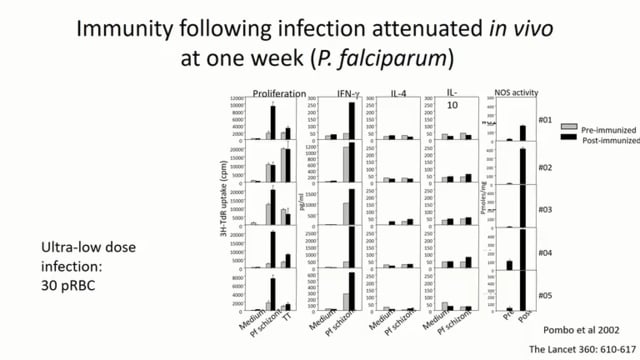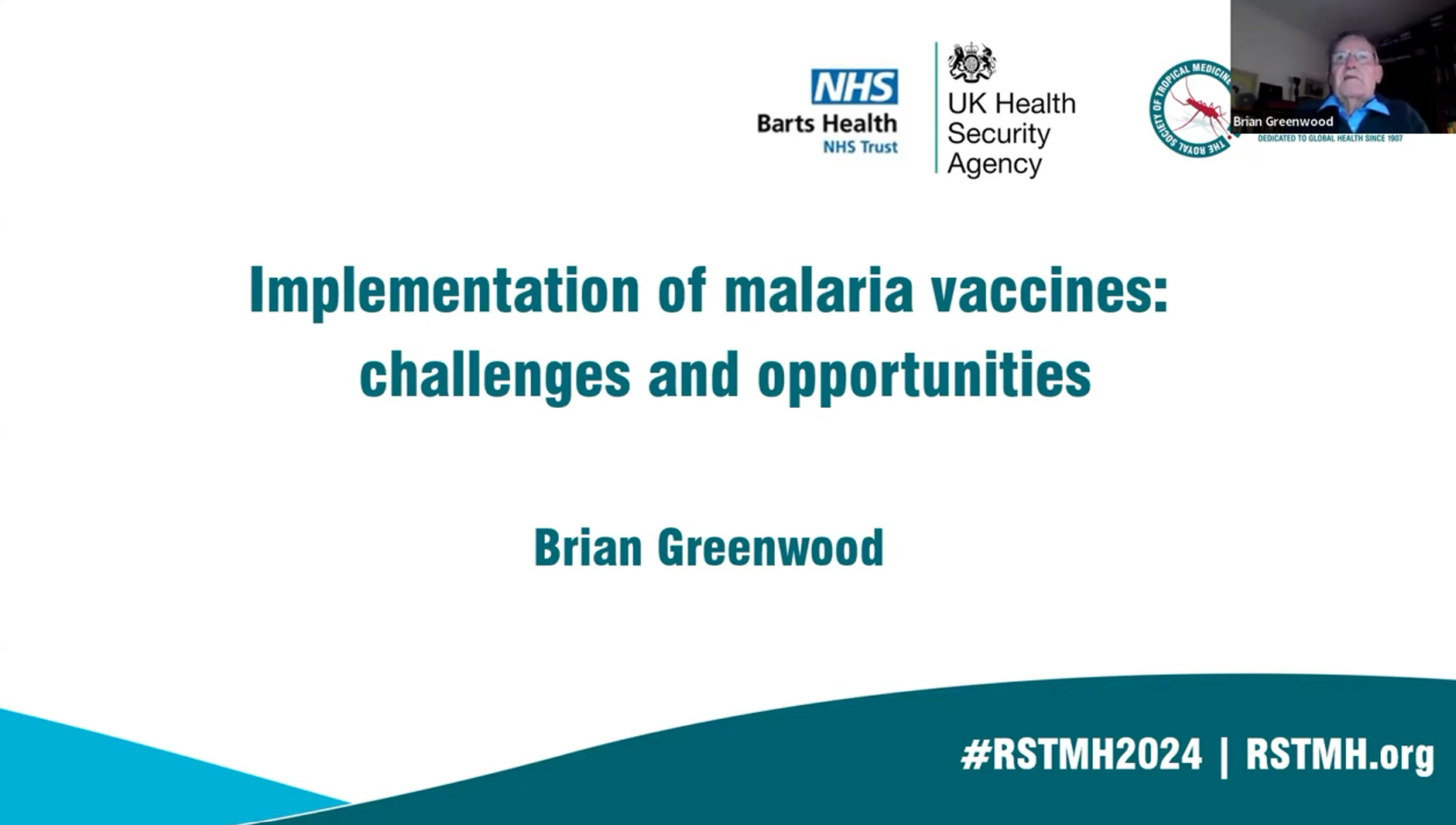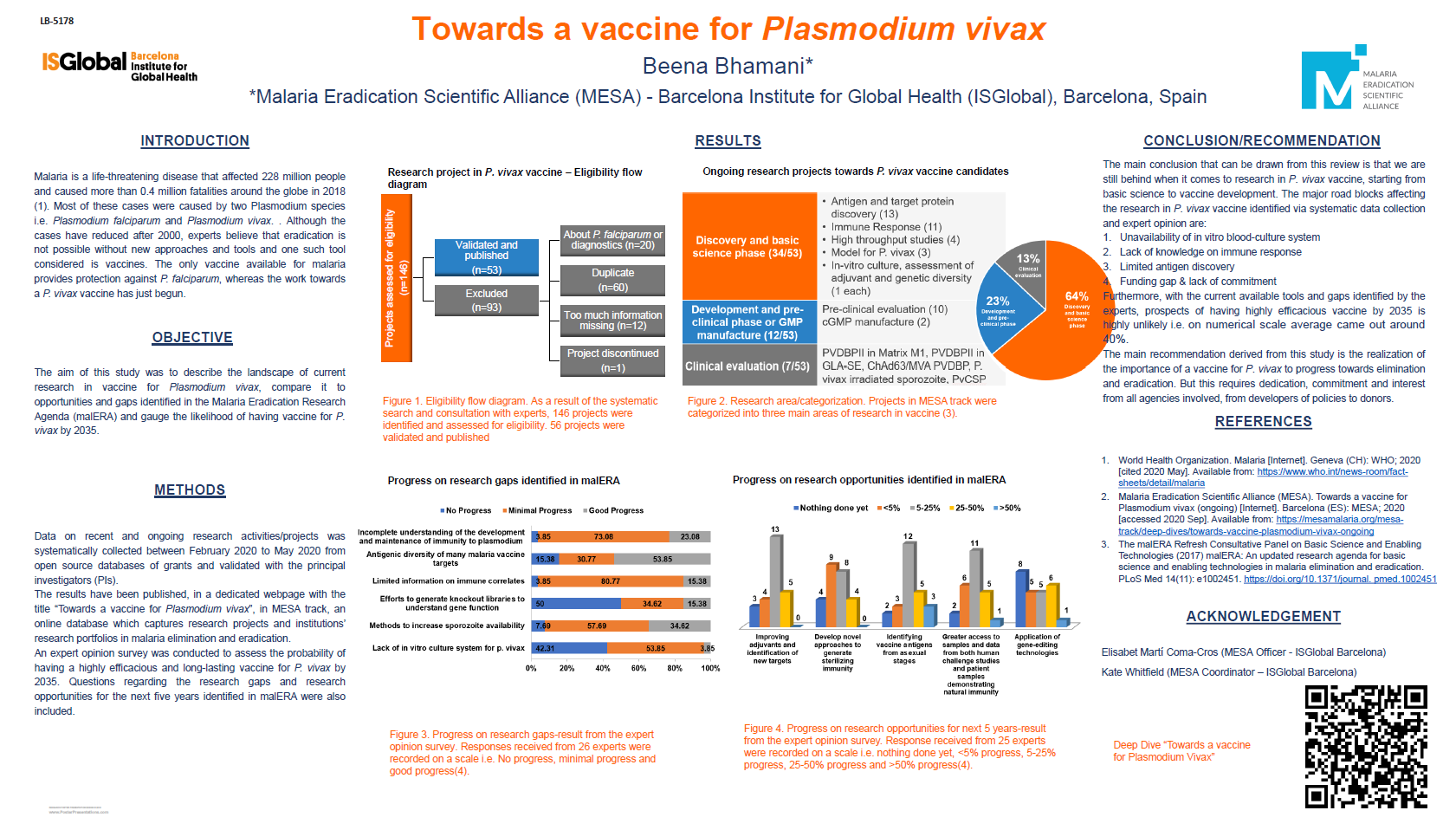Last Updated: 05/02/2025
Synthesizing immunoinformatics and genetic epidemiology to identify signatures of natural functional immunity to malaria parasites
Objectives
This project has 3 specific objectives:
- Correlate the protective clinical reinfection phenotypes with P. falciparum circumsporozoite protein (CSP) C-terminal amino acid positions and epitopes in silico.
- Compare cumulative parasite haplotype exposure profiles to position- and epitope-specific seroreactivity against field- derived CSP sequences.
- Measure and compare protection conferred by non-CSP antigen candidates and variants in a naturally-exposed population.
Upon completion of these aims, it will have developed new data science-driven approaches for screening polymorphic antigens for epitopes and vaccine targets, which could inform rational vaccine design for malaria elimination campaigns.
An effective malaria vaccine would be transformative for malaria elimination campaigns. A major challenge to malaria vaccine development is that most immunogenic parasite antigens also exhibit extremely high polymorphism. As a consequence, monovalent vaccines have lower efficacy against mismatched variants due to imperfect cross-protective immunity. Additionally, signatures of naturally-acquired protective immunity, which inform vaccine design, are not clearly legible in most field studies, where the background of parasite diversity and accumulated lifetime exposure can bury functional responses among biomarkers of exposure. Understanding how natural exposure to protein variants confers protection is essential for designing vaccines that can overcome parasite diversity and provide robust protection. Additionally, linking infections with parasites harboring variant haplotypes to subsequent immune responses against those specific variant epitopes would support this conclusion and could identify cross-reactivity or cross-protection patterns and inform multivalent vaccine target screening and design. Parallel analysis of parasite antigenic variation and variant-specific host antibody responses in a multi-year longitudinal study of a consistent cohort offers an unprecedented opportunity to triangulate variant positions and epitopes within polymorphic malaria antigens that contribute to protective immunity. I will leverage densely-sampled longitudinal parasite genotype data (36 months of observation in over 500 participants) and samples collected as part of an ongoing, NIH-funded cohort study and combine this rich sampling structure with high-dimensional serological measurements, molecular epidemiology, and data science to develop in silico approaches for epitope screening.
The proposed work builds upon Christine Markwalter’s strengths in malaria molecular epidemiology and serology and serves as a bridge to in silico vaccinology. It builds on existing collaborations, resources, and a supportive institutional environment. The proposed projects and career development plan offer extensive training opportunities in epidemiology, immunology, informatics, and translational research, which will position the PI to launch an independent career aimed at reducing the burden of malaria and training the next generation of scientists at the intersection of sero- and molecular epidemiology, bioanalytical chemistry, and data science.
Mar 2023 — Feb 2024
$125,509


